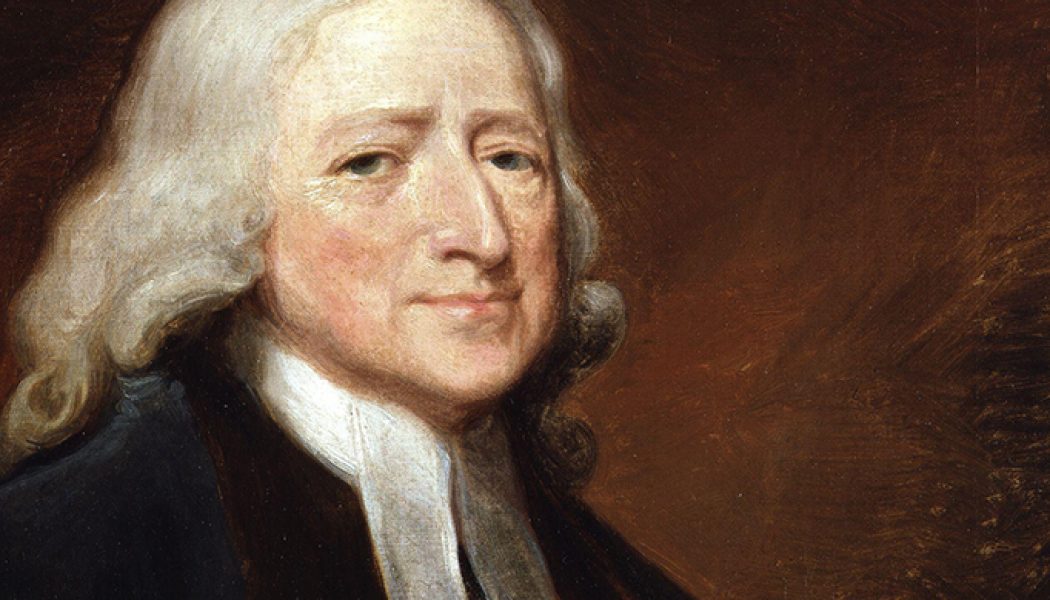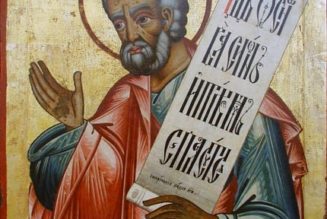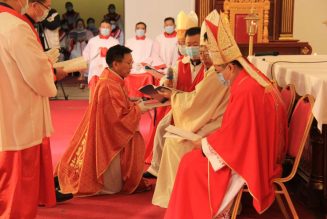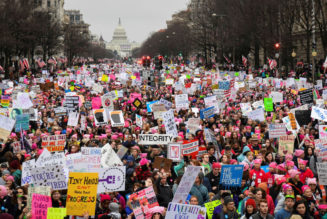
The United Methodist Church is considering a proposal for traditional Methodist communities to leave the church and enter a new denomination. Could some choose the Catholic Church via the Ordinariate?
Ten years ago, Benedict XVI issued a new decree that would create three new Catholic dioceses with English Christian patrimony called personal ordinariates and they would also receive Anglican, Methodist, Episcopal and AME congregations, clergy and individuals into the Catholic Church with the richness of their traditions.
Benedict XVI’s 2009 apostolic constitution Anglicanorum Coetibus began the Ordinariates, which received the first wave of Episcopal and Anglican congregations and clergy in North America, the United Kingdom and Oceania. And these new dioceses have also seen Catholics who were former Anglicans or Episcopalians join them, making the Ordinariate their canonical home in the wider Latin Church.
But Methodists are also part of the broader Anglican tradition for which the Ordinariate exists to provide a permanent home. And with the United Methodist Church facing a proposal to divide in May at the General Convention, with traditionalist congregations going their own way to a new denomination, could some of them end up choosing the Ordinariate?
The thought occurred to me, since growing up Catholic, my Boy Scout troop was sponsored by the United Methodist Church, and our annual Scout Sunday was a kind of ecumenism. My Scoutmaster, whom I deeply admire to this day, was a devout Methodist, and half of the Scouts were Catholic, the other half Protestant. We provided the Honor Guard, and some of us read the Bible readings from the pulpit at the worship service on Scout Sunday.
One part of the Methodist service always made an impression: sometime after the sermon, the minister invited people to come forward before the Lord, and repent of their sins against God and their neighbor. Most people knelt and prayed in the congregation, but others who felt so moved, left their seats and knelt down at the altar rail to make the general confession.
Two decades later, at my Catholic parish which is part of the Ordinariate of the Chair of St. Peter, I’d recognize that similar moving point midway in the Divine Worship Mass, when the priest or deacon turns to the people and beckons: “Ye that do truly and earnestly repent you of your sins, and are in love and charity with your neighbours, and intend to lead a new life, following the commandments of God, and walking from henceforth in his holy ways: draw near with faith, and make your humble confession to Almighty God, meekly kneeling upon your knees.”
Today, the United Methodist Church faces the prospects of division precisely over what it means to be in “love and charity with your neighbors … following the commandments of God.” Specifically, the UMC will consider whether dissolving its union over sexual morality, including blessings for “same-sex unions.”
The tragedy of the Church’s divisions is that they always take a step away from Jesus Christ’s prayer for the little flock of his disciples that “sanctified in truth” and “that they may all be one,” just as Christ and the Father are one, and “so that the world may believe that you have sent me.” Would some UMC congregations see the Ordinariate as a way to realize Christ’s prayer for unity rather than create another denomination from division?
I asked Father Robert Kirk, an Ordinariate priest who was a former Methodist pastor and now serves Mount Calvary Catholic Church, an Ordinariate parish in Baltimore, about these questions.
Father Kirk explained these issues about Church doctrine and discipline on morality have consumed the UMC’s General Convention for almost 40 years.
“Every four years, when there is the general convention, there’s always a battle over the language,” he said.
For the traditionalist Methodists, many may feel the proposal to divide is sufficient to allow them to “simply go about honoring scripture and saving souls” without having to spend precious time on fighting political battles for the time being.
“It’s just unfortunate that there’s been this phenomenon in Protestantism since the days of Luther. It’s just one more split in the Protestant Church,” he said.
Wesley’s Method
Methodism is part of the Anglican tradition of faith since its founder, John Wesley (1703-1791), was an Anglican priest, prolific hymn writer, and missionary to the people in England. Father Kirk explained that while most Anglican divines “sat there in their churches and waited for the people to come in… John Wesley and his circuit riders went out and brought the gospel to the people, for example, the coal miners in England who lived under terrible conditions and had very, very difficult lives.”
And for the Ordinariates, as Catholic dioceses whose very mission from the pope is to spread the Gospel and bring men and women into the fullness of life in Jesus Christ, Wesley highlights the kind of evangelical zeal to build churches out of very small communities of believers.
“John Wesley had the organizational and administrative gifts to turn those revived people into little communities with local leadership structure serviced by circuit riders, pastors he would ordain that would go from community to community,” Father Kirk explained.
“And that’s why at one point, you know, there were more Methodist churches in the United States than there were post offices, because the circuit riders were enough to go out and follow the frontier,” he said. “As soon as there’s a group of people, a town of a hundred people, there’d be a Methodist church there. That was the organizing structure the Methodists used.”
An Ordinariate Path
Father Kirk said “it would be wonderful” for Methodist clergy and congregations to join the Ordinariate. But he said that decision would depend on where they were in their spiritual journey to consider making the Catholic Church their rock of stability.
Most of the traditional UMC congregations, he said, tended to identify as Protestant, and may have deep-rooted misconceptions about what it means to be Catholic.
“My journey was actually happening many years before I left the Methodist Church,” he said, crediting the witness of his wife’s pro-life activism in helping him come to understand why joining the Catholic Church made sense. “Most Protestants have certain misinformation about what it means to be Catholic, and every Protestant that has to come to terms with their particular stumbling blocks in terms of becoming Catholic.”
Additionally, he explained, many UMC congregations have former Catholics who joined over irregular marriages they could not get solemnized in the Catholic Church. That may present another complicating pastoral factor for congregations contemplating such a move.
But at the same time, raising awareness that the Ordinariate exists as a home in the Catholic Church for Methodists and all who claim some connection to the whole Anglican patrimony, is important. Father Kirk said when he became Catholic, he was aware of the Ordinariate, but thought it was only meant to receive Anglicans and Episcopalians. When his wife introduced him to Bishop Steven Lopes of the Ordinariate of the Chair of St. Peter, the bishop told him Catholics who were former Methodists were also welcome to join the Ordinariate. He also told Father Kirk that as a former Methodist clergyman, he could apply to become a priest in the Ordinariate, a process that takes 2-3 years.
Father Kirk said his application was accepted, and he was ordained a priest this past June.
“Once I became Catholic, I had figured that the pastoral part of me was done,” he said. “So it just came as a big surprise, and a big blessing to find out that there was a door for me.”
Reporter’s note: The Ordinariate of the Chair of St. Peter is the Catholic diocese with Anglican traditions covering North America and celebrates the Ordinariate form of the Roman Rite called Divine Worship. All Catholics are able to be members of Ordinariate parishes. Pope Francis has twice expanded the Ordinariate’s canonical membership rules and missionary mandate, so that any Catholic who receives their sacraments of initiation through the Ordinariate, any Catholic with an Anglican/Episcopalian/Methodist/AME Church background, any Protestant who has come into communion with the Catholic Church by the ministry of the Ordinariate, or any Catholic whose faith has been enriched and deepened by participation in the life of the Ordinariate, may become canonical members of the Ordinariate as well as their immediate family members.
For more information about the Ordinariate read the Register’s coverage:








